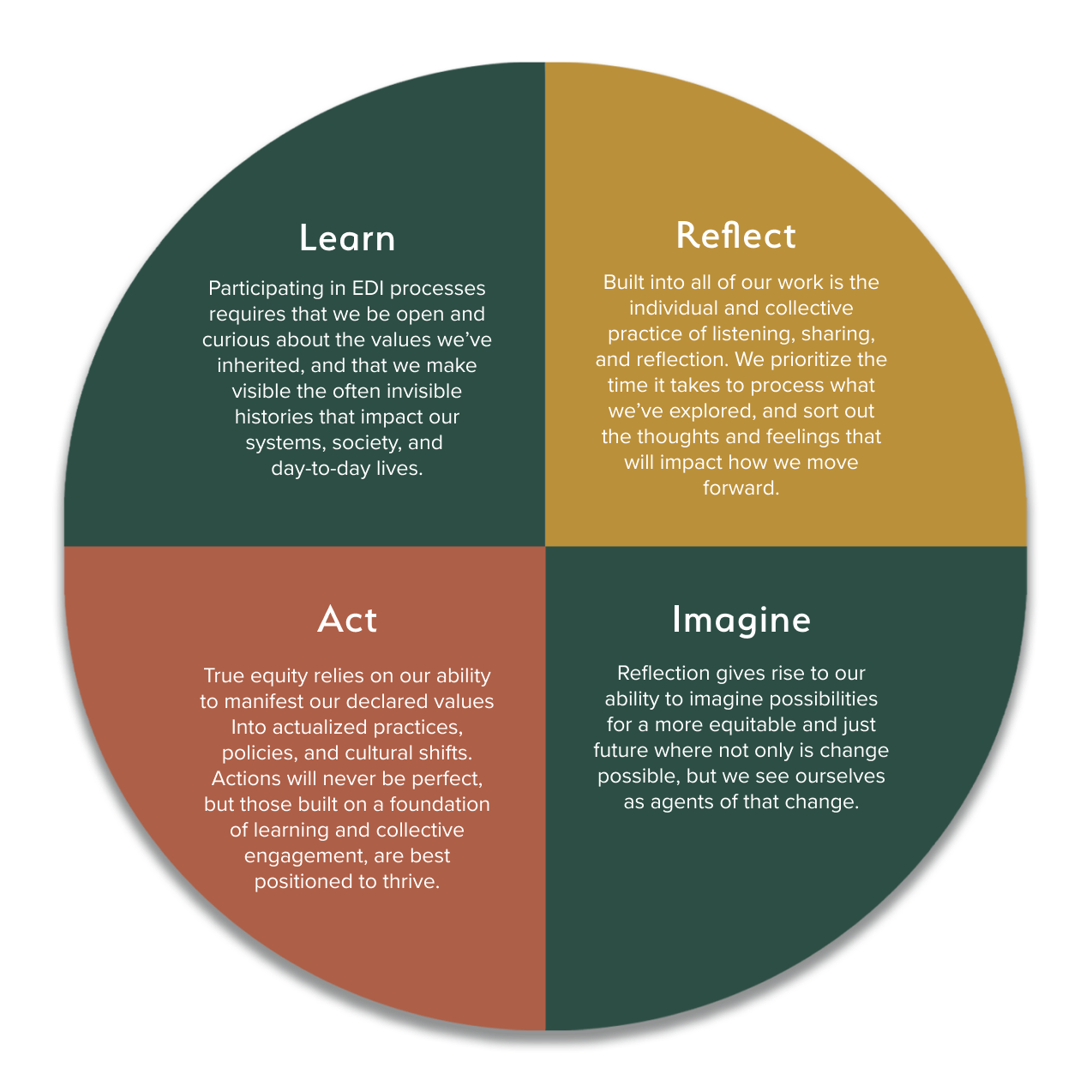About Us
True North EDI was founded by CEO, Cardozie Jones, on the belief that the work of undoing oppression requires expert and well-rounded facilitation, and that justice and equity is more than just a cognitive exercise.

We cannot think our way out of oppression.

Our Why
Creating whole and complex solutions requires that we understand and honor the wholeness and complexity of people, all people. That means designing processes that understand that individuals and organizations are not only defined by their intellect, but the physical, the emotional, and even the spiritual self — the latter referring to whatever ties us together and inspires purpose.
True North EDI has implemented and practiced this approach across sectors with clients in the nonprofit, philanthropic, and corporate sectors. Our facilitators engender our spaces with buoyancy, ease, and compassionate criticality that allows difficult conversations to move forward toward meaningful action.
Rather than inclusion, the “i” in True North EDI stands for interdependence.
Rather than inclusion, which can unintentionally conceal an existing power dynamic—that is, those with power including those without—the concept of interdependence is a reminder that the aspirations of our work can never be achieved by any single individual; it must happen in community and as part of collectives.
Rather than inclusion, the “i” in True North EDI stands for interdependence.
Rather than inclusion, which can unintentionally conceal an existing power dynamic—that is, those with power including those without—the concept of interdependence is a reminder that the aspirations of our work can never be achieved by any single individual; it must happen in community and as part of collectives.
Our Values
Illumination
We can only give our attention to and care for what is visible to us. This requires that we take the time and do the work of making what may be visible for some, visible to the whole. While we know that we won’t always like what we see as it relates to our collective history, our relationships, or our own beliefs, we know that transformation can only occur when we confront and engage what is present and use that knowledge to design what we know is possible.
Creativity
Our ability to imagine a world we’ve never seen takes bravery and imagination. Designing systems for change that aren’t disguised facsimiles of their oppressive and dehumanizing predecessors requires play and experimentation. While there are always boundaries to the work, we are committed to those boundaries not representing limitations, but instead, spaces within which we can generate inspiring ideas and new pathways forward.
Joyful-Orientation
Our mission comes from, moves through, and works toward a place of joy. We don’t mean joy as in extreme happiness or pleasure, nor are we referring to a state In which pain doesn’t exist. It is the permission to show up as complex, messy, silly, sad, and whole people. Joy has the capacity to hold and, if necessary, transform all the complexity of who we are. It is a belief that tomorrow has the potential to be better than today and that nothing is too heavy if we carry it together.
Grace
The space to move forward, backward, and pivot when necessary requires that grace not be part of our work, but the container for it. When grace is present, we are granted the permission to take risks, be ambitious, and show up vulnerably despite the real fear that our intentions and impact might misalign. But mistakes have been a necessary part of our learning and growth, and grace–accompanied by accountability–allow us to be a community that is both generative and regenerative.

